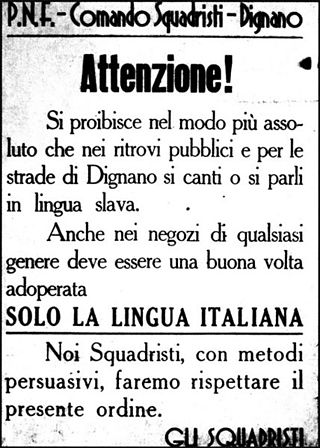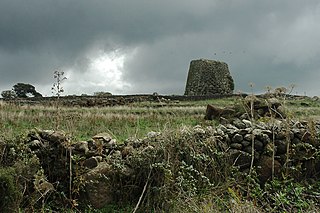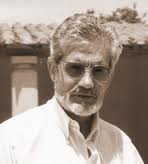 | |
| Author | Giulio Angioni |
|---|---|
| Original title | Assandira |
| Country | Italy |
| Language | Italian |
| Genre | Novel |
| Publisher | Sellerio |
Publication date | 2004 |
| Media type | |
| Pages | 243 |
| ISBN | 88-389-1991-7 |
Assandira is a novel by Giulio Angioni, published in 2004 by Sellerio.
 | |
| Author | Giulio Angioni |
|---|---|
| Original title | Assandira |
| Country | Italy |
| Language | Italian |
| Genre | Novel |
| Publisher | Sellerio |
Publication date | 2004 |
| Media type | |
| Pages | 243 |
| ISBN | 88-389-1991-7 |
Assandira is a novel by Giulio Angioni, published in 2004 by Sellerio.
The old Sardinian shepherd Costantino Saru has been persuaded by his son and his Danish daughter in law to establish a hotel restaurant (called Assandira) in his abandoned barn. The characteristic of the company should be to offer European customers, especially from the north, an experience of life in the traditional pastoral world of Sardinia, [1] where the old shepherd Costantino should be a kind of guarantor of authenticity. The company thrives and even Costantino feels at ease playing the part of the ancient Mediterranean shepherd. [2] But one day a fire destroys Assandira, kills his son and causes abortion of her daughter in law. Costantino feels responsible and confesses to the investigator. The reason for his self-attribution of responsibility is not clear to the judge, [3] who does not believe in such a self-incrimination, since his sharing the very idea of reliving the past in order to entertain the tourists. [4]

Grazia Maria Cosima Damiana Deledda was an Italian writer who received the Nobel Prize for Literature in 1926 "for her idealistically inspired writings which with plastic clarity picture the life on her native island [i.e. Sardinia] and with depth and sympathy deal with human problems in general". She was the first Italian woman to receive the prize, and only the second woman in general after Selma Lagerlöf was awarded hers in 1909.

Sardinian or Sard is a Romance language spoken by the Sardinians on the Western Mediterranean island of Sardinia.

Emilio Lussu was an Italian soldier, politician, anti-fascist, and writer.

Sassarese is an Italo-Dalmatian language and transitional variety between Sardinian and Corsican. It is regarded as a Corso–Sardinian language because of Sassari's historic ties with Tuscany and geographical proximity to Corsica. Despite the robust Sardinian influences, it still keeps its Corsican roots, which closely relate it to Gallurese; the latter is linguistically considered a Corsican dialect despite its geographical location, although this claim is a matter of controversy. It has several similarities to the Italian language, and in particular to the old Italian dialects from Tuscany.
Gavino Ledda is an author and a scholar of the Italian language and of Sardinian. He is best known for his autobiographical work Padre Padrone (1975).

Italianization is the spread of Italian culture, language and identity by way of integration or assimilation. It is also known for a process organized by the Kingdom of Italy to force cultural and ethnic assimilation of the native populations living, primarily, in the former Austro-Hungarian territories that were transferred to Italy after World War I in exchange for Italy having joined the Triple Entente in 1915; this process was mainly conducted during the period of Fascist rule between 1922 and 1943.

Giulio Calì was an Italian film actor. He appeared in more than 60 films between 1927 and 1966.

Paleo-Sardinian, also known as Proto-Sardinian or Nuragic, is an extinct language, or perhaps set of languages, spoken on the Mediterranean island of Sardinia by the ancient Sardinian population during the Nuragic era. Starting from the Roman conquest with the establishment of a specific province, a process of language shift took place, wherein Latin came slowly to be the only language spoken by the islanders. Paleo-Sardinian is thought to have left traces in the island's onomastics as well as toponyms, which appear to preserve grammatical suffixes, and a number of words in the modern Sardinian language.

Giulio Angioni was an Italian writer and anthropologist.

The literature of Sardinia is the literary production of Sardinian authors, as well as the literary production generally referring to Sardinia as an argument, written in various languages.

Salvatore Mannuzzu was an Italian writer, politician, and magistrate.

Salvatore Niffoi is an Italian writer.

Flavio Soriga is an Italian writer.
Sardinian Literary Spring is a definition of the whole body of the literature produced in Sardinia from around the 1980s onwards.
Sardinian banditry is a term which describes an outlaw behavior typical of the Mediterranean island of Sardinia, dating back to the Roman Empire. Twentieth-century Sardinian banditry had economic and political overtones.

Milena Agus is an Italian author from Sardinia. She is one of the leading novelists in the so-called Sardinian Literary Spring which began in the 1980s and which includes other international names such as Michela Murgia.

Salvatore Satta was an Italian jurist and writer. He is famous for the novel The Day of Judgment (1975), and for several important studies on civil law.

The Byzantine age in Sardinian history conventionally begins with the island's reconquest by Justinian I in 534. This ended the Vandal dominion of the island after about 80 years. There was still a substantial continuity with the Roman phase at this time.
John Moulton Day was an American historian.
Limba Sarda Comuna (LSC) is an orthography for the Sardinian language, created with the aim of transcribing the many variants of spoken Sardinian, with their distinctive characteristics, in the same way, and adopted experimentally in 2006 by the Autonomous Region of Sardinia for the official writing of its acts, jointly with Italian.